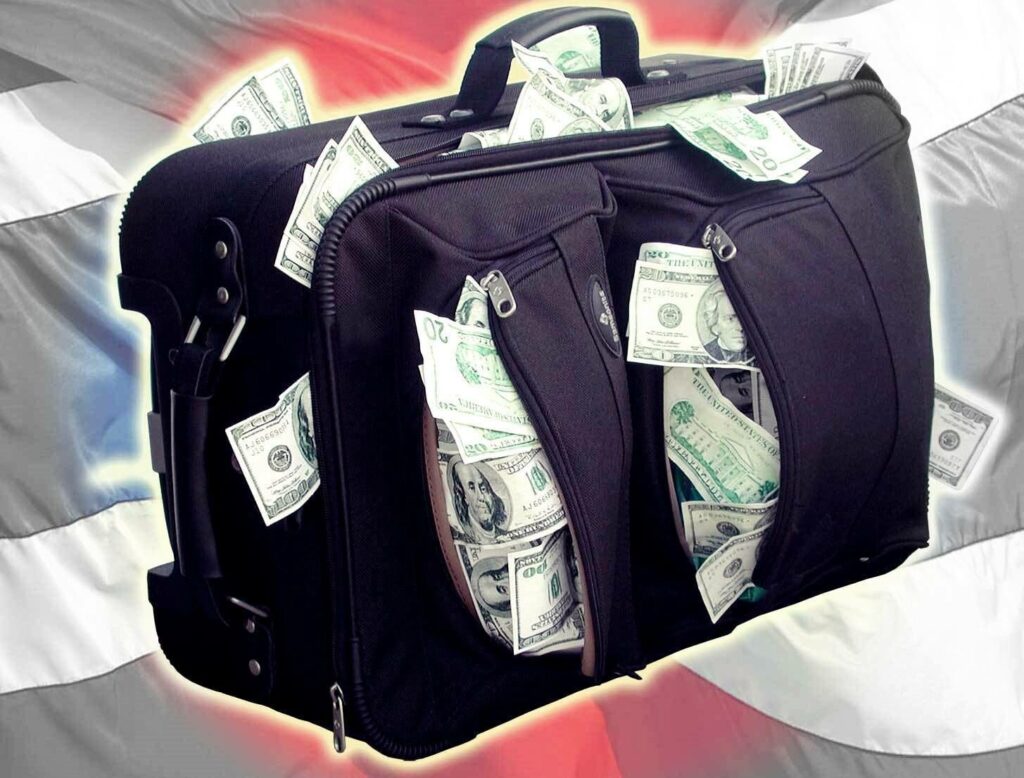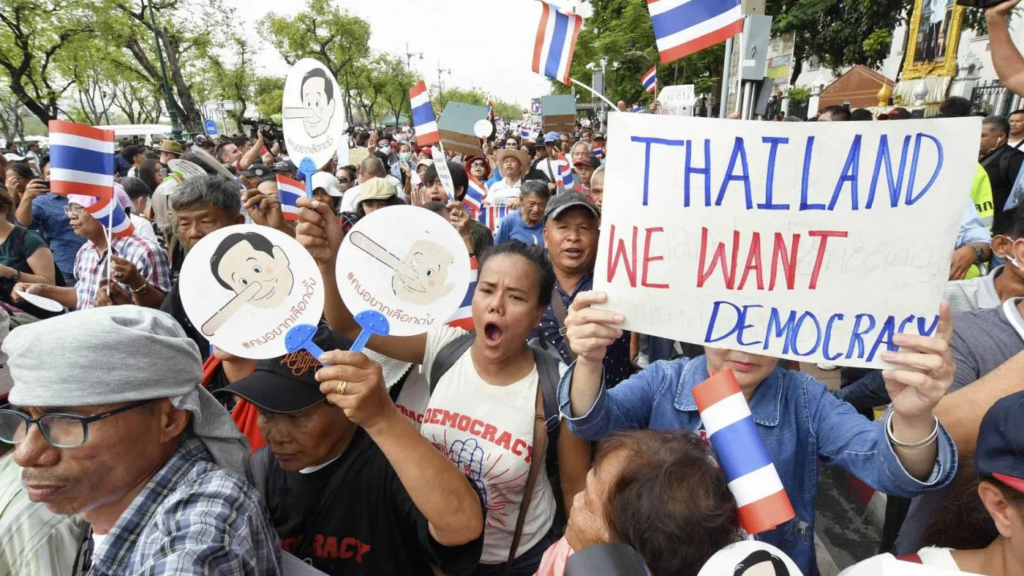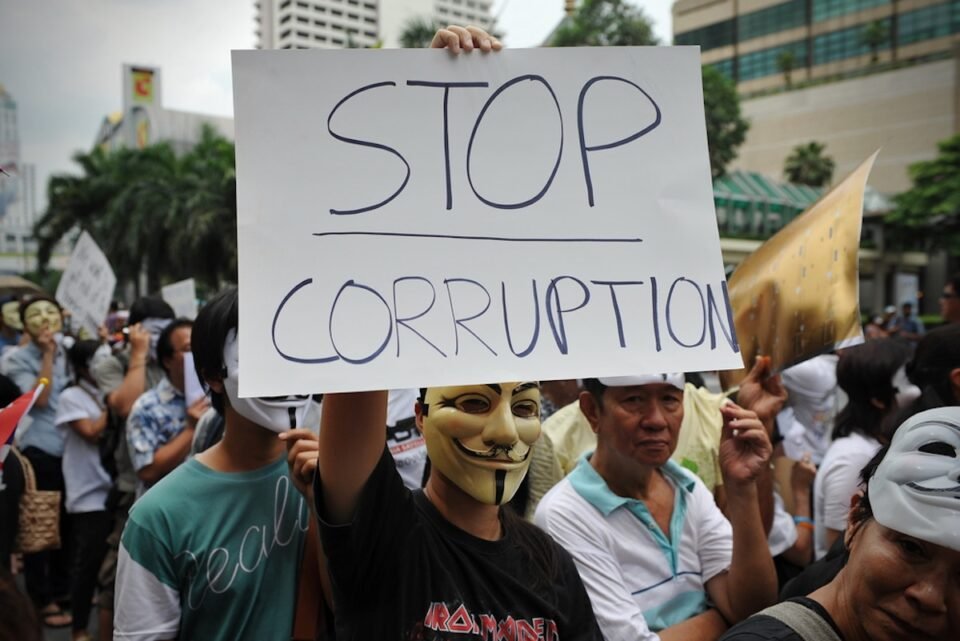Thais’ tolerance for systemic corruption seems to be waning, placing pressure on political parties to stop merely expressing concern and begin implementing real remedies.

According to estimates, the country loses billions of baht each year to corruption as tax money is diverted to corrupt officials’ bank accounts. A senior employee of the Ratchathewi district revenue office in Bangkok was accused earlier this month of accepting bribes totaling around 4 million baht in return for the removal of 40 million baht in building and land tax. The cheaply paid bureaucrat somehow held assets worth over 100 million baht, according to an examination of his residence.
Ratchada Suriyakul Na Ayutthaya, meanwhile, was fired earlier this year for accepting bribes while serving as the director-general of the Department of National Parks, Wildlife, and Plant Conservation.
Mana Nimitmongkol, secretary-general of the Anti-Corruption Organization of Thailand (ACT), noted that despite the country’s increased use of anti-graft measures, corruption has not decreased.

How dirty is Thailand really?
Thailand is ranked 101st out of 180 nations in Transparency International’s 2022 Corruption Perceptions Index. Thailand moved up nine positions from 2021 in the most recent rankings. But Thailand had only improved by one point in terms of transparency.
Mana argued that no matter whose party was in power, there had been little progress against corruption in Thailand throughout the years. Over the past ten years, Thailand’s score has fluctuated between 35 and 38 out of 100.
Mana, though, is not ready to give up. Despite how hollow they may initially appear, he thinks that political promises provide a solid foundation for future anti-corruption efforts.
“Parties running in the general election of 2023 must at the very least outline their anti-corruption policies. Even though their remarks currently appear to be empty promises, we can subsequently pressure them to keep their word, Mana stated.
Thais demand an anti-graft campaign
Voters’ opinions on political parties’ and candidates’ anti-corruption strategies were recently gathered by ACT in advance of next month’s election.
Even with Thailand’s current economic troubles, the survey, which was done jointly with the University of the Thai Chamber of Commerce and the Khon Thai Foundation, indicated that respondents anticipate the next administration to address corruption as its first issue. Thais ranked the cost of living as the most urgent issue that the new administration should address in 2019.
According to a survey of 2,255 people, 83.6% of voters will avoid parties that don’t have anti-corruption programs because they believe this shows a lack of accountability. Only 16.4% of the respondents stated they would support a party without any anti-corruption initiatives, citing the fact that corruption was already too entrenched to be eliminated.
Meanwhile, 25% said that the next administration should focus on “corruption” as its first issue. The issues with education, social injustice, and the economic disparity came next.
About 18% of those polled agreed that the next administration must punish any of its officials or allies who are discovered to be involved in corruption. Furthermore, 16.7% of respondents hoped that the new administration would increase transparency by making crucial information online accessible.
According to Mana, “the findings reflect that the respondents understand that corruption contributes to issues like economic difficulties, a poor quality of life, and drug abuses.” Voters today want political parties implement concrete anti-corruption initiatives.
positions of the parties on corruption
A comprehensive strategy to eradicate corruption from Thai society has been presented by the Move Forward Party, which is well-liked among the younger population. For instance, it intends to develop intelligent technologies to combat graft, make state data immediately accessible to promote transparent and corruption-free government, and provide incentives to whistleblowers.
Additionally, Move Forward has committed to make sure that government services are delivered quickly. The chance of people paying “tea money” in order to receive governmental services more quickly decreases as red tape decreases. The party also pledges to guarantee fairness and openness in police promotions and appointments. Allegations that important positions in profitable positions are sold to the highest bidder frequently target the police force.
Additionally, the Thai Sang Thai Party has taken a strongly worded position against corruption. According to its policy, a center against corruption would be established to gather data on alleged cases of graft and take appropriate action.
The United Thai Nation Party, which is running General Prayut Chan-o-cha for prime minister, has made fighting corruption a key component of its program. It has promised to properly investigate apparent anomalies at all levels and address legal loopholes that encourage corruption.

The phrase “Honest Democracy Free from Money Politics” is being promoted by the Democrats, Thailand’s oldest political party, in an effort to present itself as a force against all types of corruption.
According to the Seree Ruam Thai Party, it will actively combat corruption, uphold moral principles, and use public funds.
Chart Technology will be used by Pattana Kla and Pheu Thai to increase transparency and reduce corruption.
anticipations and suggestions
Mana concurred that the likelihood of corruption inside government organizations decreased with increased transparency. He suggests that the next administration should change the requirements for data disclosure in order to foster greater transparency.
“The overall situation will improve if each agency is encouraged to combat corruption. Results will be apparent, he promised.
Mana also wants parties to exercise control over their supporters, put in place clear safeguards against corruption, and punish corrupt individuals.
Punch Up & WeVis’ Thanisara Ruangdej, CEO and co-founder, said her organization has been developing tools for voters to hold their elected officials accountable. Punch Up & WeVis aims to empower individuals through data. These tools concentrate on the data disclosure, corruption investigation, and related enforcement pledges made by political parties during their election campaigns.
As people get more politically engaged, “our tools will be effective,” she declared.
Punch Up & WeVis made the decision to enter the anti-corruption space after observing that the people wanted to contribute but had no avenues to do so, and that the government tended to provide justifications rather than information.
Thanisara continued, “We want to make sure that everyone can contribute and make a difference.




